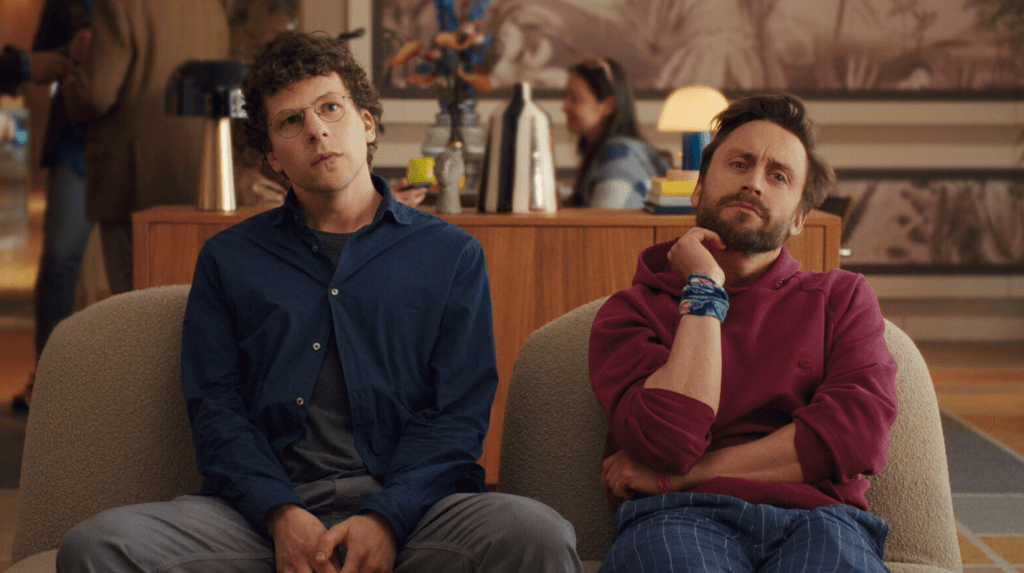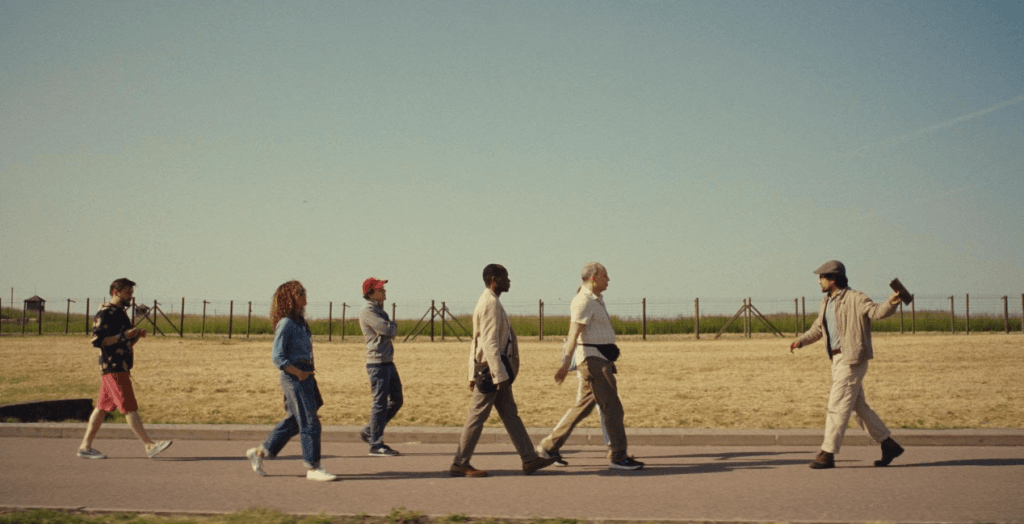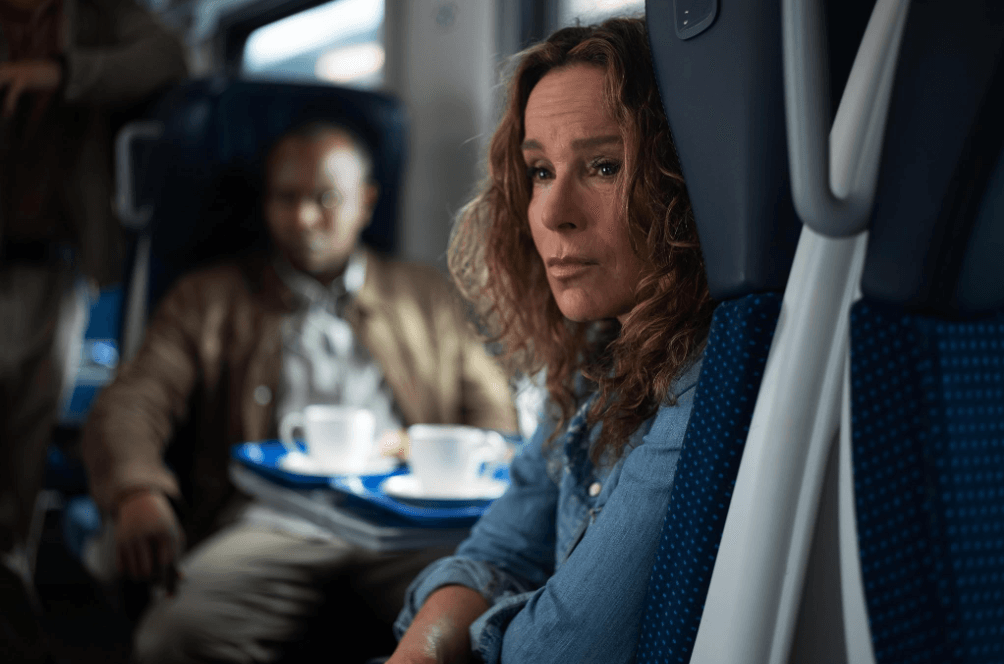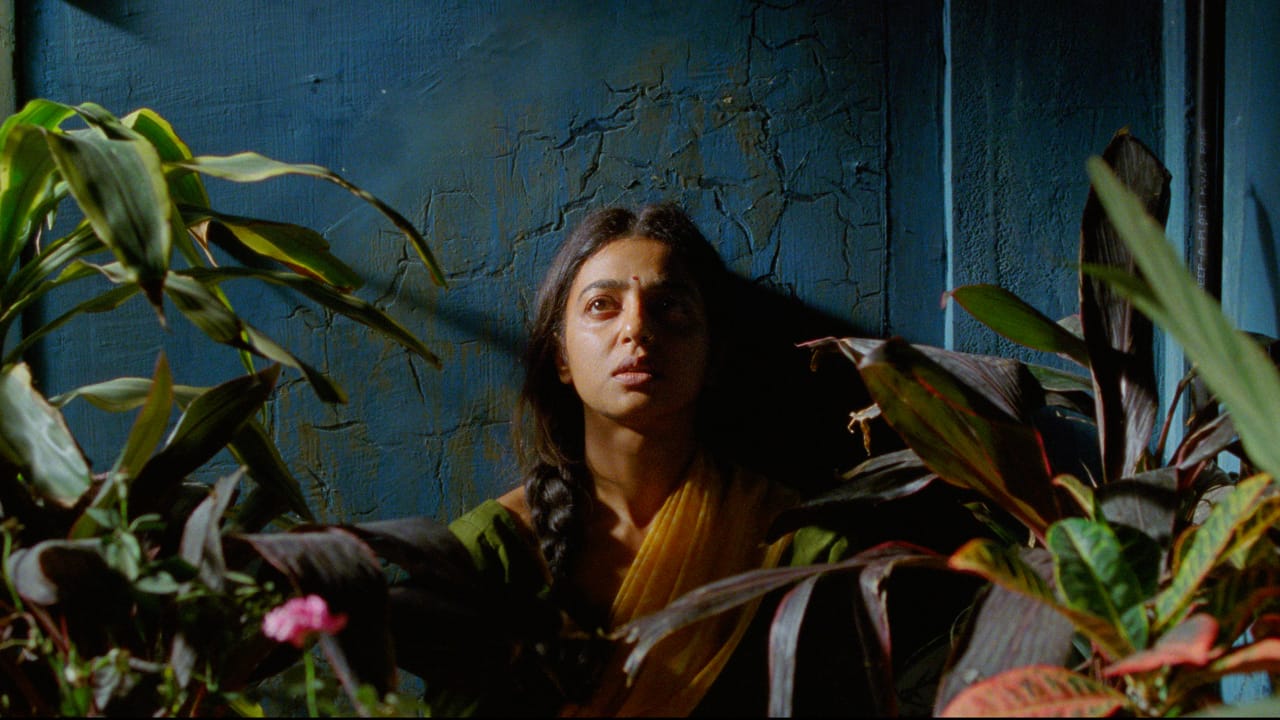A Real Pain is a 2024 comedy-drama film, an international co-production between Poland and the United States. It is directed by Jesse Eisenberg, starring Eisenberg and Kieran Culkin in the lead roles as two mismatched cousins. In the film, the two cousins reunite after a long period to take a heritage tour of Poland and to visit their late grandmother’s house. Meanwhile, they constantly dealt with their old family histories and opposite personalities.
A Real Pain can’t fit into the box of being a feminist film, but the relationship between the mismatched cousins seems to be questioning various patriarchal norms and structures.
What is A Real Pain about?
The film commences with Benji sitting at the airport waiting for his cousin David to board the flight to Poland. They use the money left by their grandmother for them to take this heritage tour to Poland. They want to see and visit the home where their grandmother lived once. Benji is a free-spirited and carefree person who impresses everyone; however, David is a family man who has a wife and a son. He prefers to be quiet most of the time.

On the heritage tour, they meet their tour guide James from Yorkshire, Marcia, a divorcee from California, and many others. Throughout their tour, Benji is funny but he also comes out as someone holding a lot of pain and empathy. The group also visits sites that are marked as the spaces of the Jewish Holocaust. They also visit the concentration camps and gas chambers where millions of Jews were killed. In the end, both Benji and David reached their late grandmother’s home, and both got nostalgic.
The real pain comes out of empathy: A learning for the feminist movement
In the film A Real Pain, there are constant conversations about suffering and pain. Being Jews, visiting a space that was once a deathbed for millions of their community members is traumatic for them. However, the film is not a film based on feminism, but it clearly defines that the real pain that we feel should come out of empathy, not from a position of privilege and pity.

For example, the heritage group travels to Lublin on the second day. On the train, when they are all sitting in the first-class seats, Benji is unsettled by the same. For him, being on a Holocaust tour, it is not right that at a place where the Holocaust took place, we sit on the chairs of privilege and mourn. This gives learning to the larger movement about how we can not sit in the positions of class privileges and appropriate others’ suffering. Our politics should come out of empathy or love.
Similarly, James, while showing everyone the concentration camps, explains the irony of how just a few miles away from the Holocaust site, a sparkling town is well established.
Where are the women in the film?
The primary and lead characters in the film are male, Benji and David. The story revolves around them, which represents a very masculine perspective of the plot. There are women like Marcia, Diane and Benji’s grandmother but they hardly take center position in the story. Marcia is a recent divorcee and her life might be seen as a woman who is rebuilding her life. Her life is quite unstable as compared to others in the group like Mark and Diane. Seems like the director missed the opportunity to cover the struggles of a divorced woman which could have given more voice to a female character.

Diane is just shown as the wife of Mark. She hardly speaks in the group and stays under the shadow of her husband. Her character can be seen as how patriarchy expects women to be secondary to their husbands. Her character could have been explored more.
Gender expectations and power dynamics
As a free-spirited character, Benji is constantly vulnerable throughout the film. After visiting the concentration camp, Benji cries uncontrollably. Benji constantly makea everyone laugh with his weird sense of humour. Time and again, he gets emotional remembering his grandmother. He often expresses his vulnerabilities and discomfort during the tour. Benji’s outspoken character is a resistance against how men are generally expected to be: tough, not crying, and reserved.

At the same time, David is a reserved, inexpressive family man who often feels uncomfortable with Benji’s not-so-masculine behaviour. His discomfort with Benji’s raw emotions, like trying to die by suicide, is an example of how men are often expected to suppress their emotions.
Families are all about power play. In A Real Pain, there is always power playing a very significant role between Benji and David. David always feels a sense of control over Benji. He constantly tries to correct Benji’s behaviour, which shows how in families one party tries to control the other party. Here, David, the one who fits in the norm, is doing the same. David taking all the responsibility to control Beji is a display of how in a patriarchal structure, often the responsibility to suppress emotions and control is on men.
The film is a warm watch but should be watched with care since it has mentions of the Holocaust in it. Jesse’s writing is top-notch, making the international co-production a successful strike. Moreover, Jesse and Culin’s performances are praiseworthy, and dominate other characters in the film. The film displays the patriarchal reality of power play but also shows resistance to it in the form of Benji. The film is overall a good watch.
About the author(s)
Jatin Chahar (he/they) is a student of Philosophy at Ramjas College, University of Delhi. His writing stems from critical reflection on various socio-political issues, particularly gender and politics. Art is resistance for him. He loves making art that serves the masses and brings forward the realities of the power structure of contemporary societies which excludes marginalised sections of society. He is also into photography and filmmaking. His major areas of research interest are caste, class, and their intersection with sexual fantasies.






